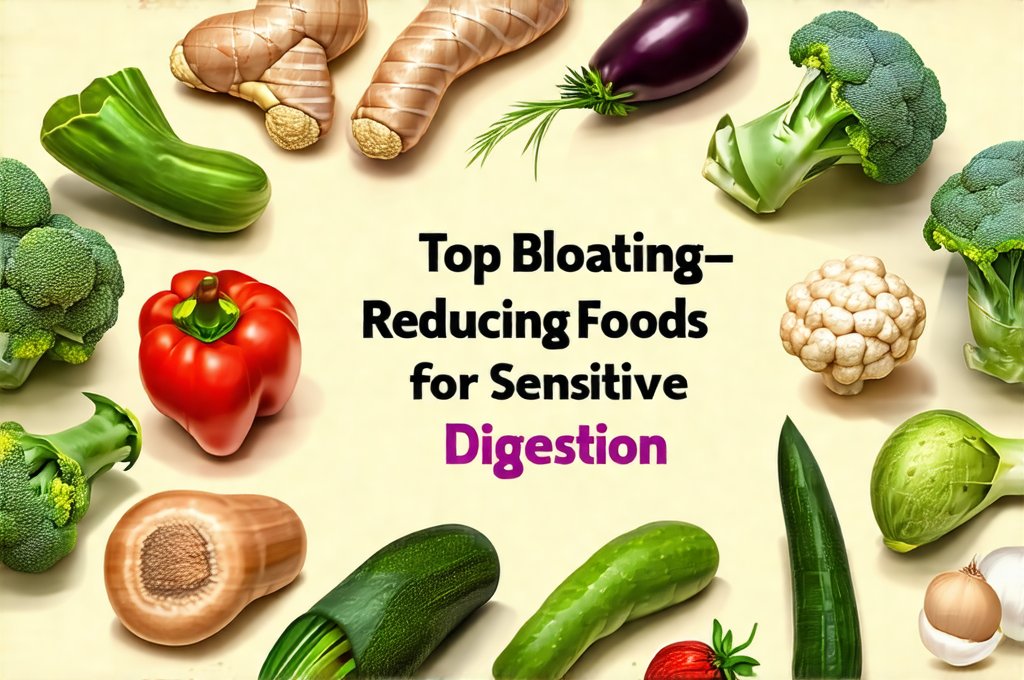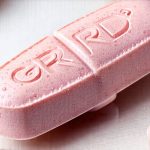Bloating is an incredibly common digestive issue, impacting millions worldwide and often causing significant discomfort. It’s not usually a sign of something serious, but that doesn’t make it any less disruptive to daily life. From feeling overly full after small portions to experiencing visible abdominal distension, bloating can range from mildly annoying to truly debilitating. Understanding the root causes of bloating – which can include everything from dietary choices and food sensitivities to stress levels and gut microbiome imbalances – is the first step towards finding relief. Many people instinctively reach for quick fixes like antacids, but a more sustainable and effective approach often lies in adjusting your diet to incorporate foods that actively support healthy digestion and minimize inflammation.
This article will delve into the world of bloating-reducing foods specifically tailored for sensitive digestive systems. We’ll explore how certain food choices can dramatically impact gut health and reduce uncomfortable symptoms. It’s important to remember that everyone is different, and what works for one person may not work for another. However, by focusing on easily digestible options, incorporating probiotic-rich ingredients, and avoiding common trigger foods, you can significantly improve your digestive well-being. This isn’t about restrictive dieting; it’s about making informed choices to nourish your gut and find lasting comfort.
Dietary Strategies for a Calmer Gut
The foundation of reducing bloating lies in understanding how food affects your individual system. Keeping a food diary is an excellent starting point – meticulously tracking what you eat, when you eat it, and any associated symptoms can help pinpoint specific trigger foods. Beyond that, adopting certain general dietary principles can make a substantial difference. Prioritizing whole, unprocessed foods over heavily processed options is key, as processed foods often contain additives, preservatives, and excessive amounts of sodium that exacerbate bloating. Similarly, reducing intake of artificial sweeteners – even those marketed as “healthy” alternatives – can be beneficial, as they are often poorly absorbed by the gut and fermented by bacteria, leading to gas production.
Furthermore, mindful eating practices play a crucial role. Eating slowly and thoroughly chewing your food aids digestion and minimizes air swallowing, a common contributor to bloating. Paying attention to portion sizes is also important; overeating puts excessive strain on the digestive system. Finally, staying adequately hydrated throughout the day helps keep things moving smoothly and prevents constipation, another frequent cause of bloating. Think of hydration as supporting the entire digestive process – from breaking down food to eliminating waste. If you struggle with this, consider exploring simple meal tweaks that make healthy eating easier.
Foods that Soothe Sensitive Systems
When it comes to specific foods, several options are particularly well-suited for sensitive digestion and can help reduce bloating. Ginger is a powerhouse when it comes to gut health; its anti-inflammatory properties soothe the digestive tract and alleviate nausea. Peppermint, similarly, has been shown to relax intestinal muscles, reducing spasms and gas. Fermented foods like yogurt (with live cultures), kefir, sauerkraut, and kimchi are excellent sources of probiotics – beneficial bacteria that support a healthy gut microbiome. A balanced microbiome is essential for optimal digestion and can reduce bloating by improving the breakdown of food. Understanding how fermented foods affect your specific gut health is key to choosing the right ones.
Beyond these, certain fruits and vegetables are easier on the digestive system than others. Bananas, blueberries, cooked carrots, and zucchini are generally well-tolerated, while cruciferous vegetables like broccoli and cauliflower can be more challenging for some individuals. It’s important to note that cooking these vegetables can make them more digestible, reducing their potential to cause bloating. Lean proteins like chicken or fish are also preferable to fatty meats, as they are easier to digest and less likely to contribute to digestive discomfort. Incorporating top plant-based foods can also have a significant positive impact on your gut microbiome.
Identifying Your Personal Triggers
The “one size fits all” approach rarely works when it comes to dietary changes. What triggers bloating for one person might not affect another. This is where personalized nutrition becomes incredibly important. Common culprits include:
– High-FODMAP foods (Fermentable Oligosaccharides, Disaccharides, Monosaccharides, and Polyols) – these are short-chain carbohydrates that are poorly absorbed in the small intestine, leading to fermentation and gas production. Examples include onions, garlic, apples, pears, and wheat.
– Gluten – a protein found in wheat, barley, and rye, which can trigger bloating in individuals with gluten sensitivity or celiac disease.
– Dairy – lactose intolerance is common, causing bloating, gas, and diarrhea after consuming dairy products.
– Artificial sweeteners – as mentioned earlier, these can disrupt the gut microbiome.
A carefully considered elimination diet, under the guidance of a healthcare professional, can help identify specific food sensitivities. This involves removing suspected trigger foods from your diet for a period of time and then gradually reintroducing them to observe any reactions. Remember that this isn’t about permanently eliminating entire food groups; it’s about identifying what your body tolerates and adjusting your diet accordingly. If you struggle with nausea or acid issues, exploring best breakfast options specifically tailored for sensitive digestion can be a great starting point.
The Role of Fiber in Digestive Health
Fiber is often touted as essential for digestive health, but it’s a bit more nuanced when dealing with bloating. While adequate fiber intake is important for regularity and gut microbiome health, consuming too much – or the wrong type of fiber – can actually worsen bloating. Soluble fiber, found in foods like oats, applesauce, and beans, absorbs water and forms a gel-like substance in the digestive tract, promoting gentle bowel movements. Insoluble fiber, found in whole grains and vegetables, adds bulk to stool but doesn’t absorb water as readily.
For sensitive systems, it’s often better to start with small amounts of soluble fiber and gradually increase intake as tolerated. Introducing fiber too quickly can lead to increased gas production and bloating. It’s also important to drink plenty of water when increasing your fiber intake, as this helps keep things moving smoothly. A balanced approach – focusing on soluble fiber sources and staying hydrated – is key to reaping the benefits of fiber without exacerbating digestive discomfort. For days when digestion feels particularly challenging, consider minimalist meals for easy digestion.
Hydration: The Often-Overlooked Factor
Dehydration isn’t just about thirst; it profoundly impacts digestion and can significantly contribute to bloating. When you’re dehydrated, your body pulls water from other areas, including the intestines, making stool harder and more difficult to pass. This leads to constipation, which in turn causes gas buildup and bloating. Moreover, a lack of sufficient hydration impairs the function of digestive enzymes, hindering the breakdown of food and increasing fermentation in the gut.
Aim for at least eight glasses of water per day – or more if you’re active or live in a hot climate. Herbal teas (like peppermint or ginger tea) can also contribute to your daily fluid intake and offer additional digestive benefits. Avoid sugary drinks, caffeinated beverages, and excessive alcohol consumption, as these can actually dehydrate you further. Paying attention to the color of your urine is a simple way to gauge hydration levels – pale yellow indicates adequate hydration, while dark yellow suggests dehydration. If you are sensitive to many foods, low-histamine foods may be a good option for your diet.


















